Theresa May: The prisoner of No 10
- Published
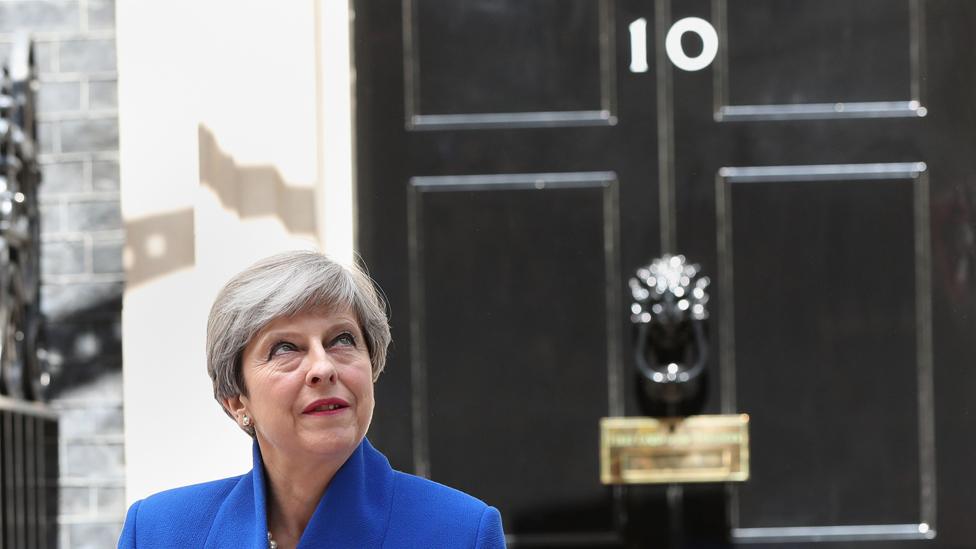
Don't be fooled out of seeing the big picture. This is not politics as normal.
The carefully constructed house of cards has been swept away. It is politics more chaotic, more brutal than any thriller.
The Conservative Party has a reputation for ruthlessness - getting rid of even much loved leaders when they are no longer a tool to maintaining the party's rule. The defenestration of their idol Margaret Thatcher was a sign of that. But this is far more cruel, a breathtakingly savage lesson in the exercise of power.
Mrs May has been broken on the electoral wheel but is forced to stand on splintered limbs, grimacing through the pain, for the sake of her party's chance to cling to office.
She is like a medieval monarch, captured by her barons, shorn of the advisers she loved and trusted, allowed one old close friend to minister cold comfort. The government is stable as a two-legged stool, and she is sapped of strength, weakened by the demands of her colleagues.
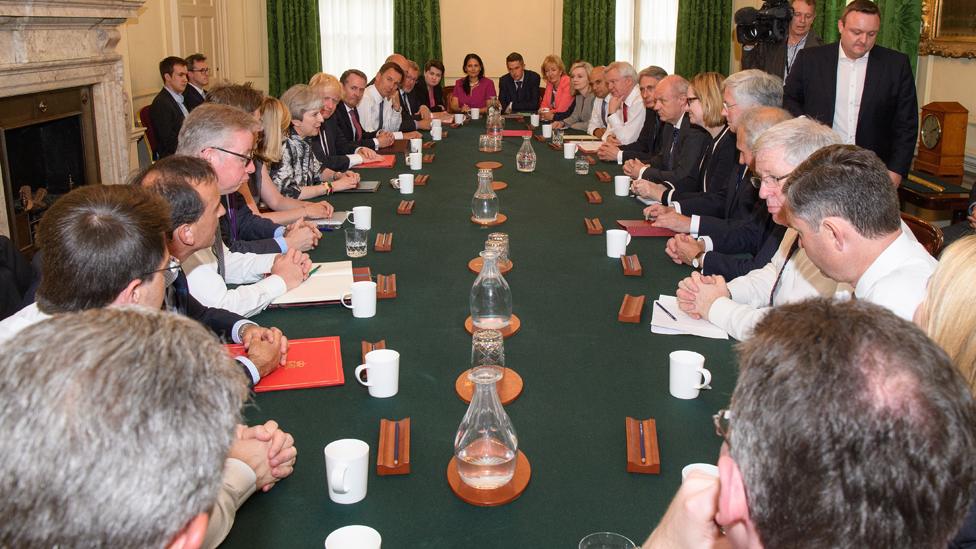
The new cabinet's first meeting today
I have spoken to no Conservative who thinks she can last more than two years - many say six months, some a few days. What's worse, they openly admit they don't know how long she can cling on, or what would be the trigger that pulls the trap.
I suspect she is still there out of agonising duty, not arrogant ambition.
Perhaps I am wrong.
Perhaps Mrs May thinks if she can hold on for 18 months, change her style of government, do a good Brexit deal, she can win the next election whenever it comes.
Weirder things have happened. But that's only true because so many weird things have happened recently. When it's rained fishes and then frogs, it's an unwise seer who tells you cats and dogs won't follow.
But such self-belief and self-confident resolution would be almost superhuman in the face of such a savage surprise as the election result.
After days of chatting to senior politicians, the best comment I heard was a question asked by a highly sophisticated operator and veteran of many cabinets: "Who's her jailer?"
The answer is the senior members of the cabinet and the influential 1922 committee of backbenchers, all desperate to avoid an immediate election and wanting a Queen's Speech and the start to Brexit talks.
No-one else wants the job quite yet. But on the other hand, no-one wanted the chaotic farce following David Cameron's exit that produced this situation.
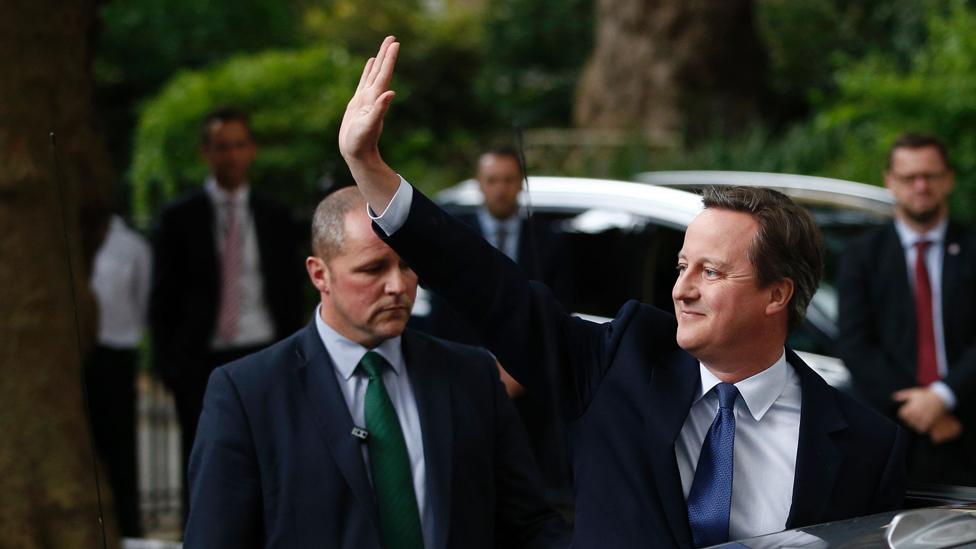
July 2016: David Cameron's departure from Downing Street
People need time to draw breath - a few weeks, a few months, a few days.
Many prime ministers begin as barely more than first among equals and end as dictators. Mrs May began her time in No 10 contemptuous of colleagues, ruling as an arrogant autocrat. Now, she is just the figurehead on the good ship Tory Resolution.
Don't blame Lynton Crosby, Nick Timothy or Fiona Hill, or those, such as David Davis, who advised her to go for an election. It was eminently sensible, given the state of the polls and the Labour Party. The failure was her failure. She wasn't up to the campaign, did not live up to her role in the heroic narrative.
There's a hugely important practical impact to this diminishment. Any minority government is hostage to the whim of MPs.
There is a popular belief that the whips do their job by bullying and threatening exposure of sexual and financial peccadilloes. In fact, it is blandishments and bribes that do the job.
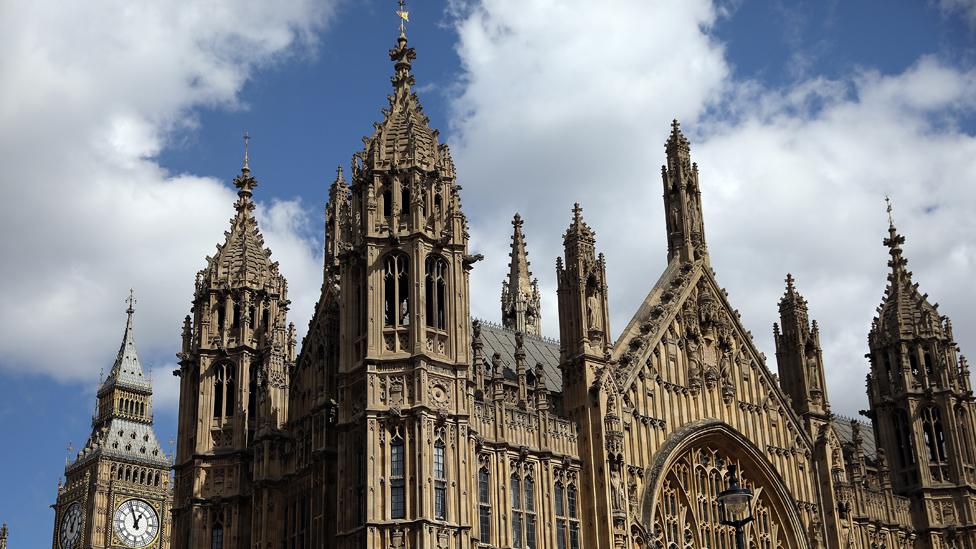
Without a majority, any vote can turn into an auction, with the most truculent MPs bidding high in their own little causes, whether demanding more protection for hedgehogs or a new roundabout for the constituency.
This is much magnified when the prime minister herself is so exposed.
The most important impact is on Brexit. Theresa May called for a bigger mandate to get a better deal. It's worth reading her exact words again. Taken literally, she will now get a worse one.
It is reported the chancellor told her, in a cold early defeat conversation, that he wants a "business-first Brexit".
The Scottish leader Ruth Davidson told her to "prioritise the economy", external.
The former Conservative cabinet minister Stephen Dorrell is no longer in Parliament but has said there should be "day-by-day" scrutiny to avoid a hard Brexit., external
Jeremy Corbyn says he wants a "jobs first Brexit" , external.
The DUP don't agree that "no deal is better than a bad deal", external.
There is talk of a cross-party alliance to press for a softer Brexit. On the whole, that's code for dropping immigration down the priority list.
Intriguingly, Lord Heseltine has suggested a deal might be done with France and Germany on freedom of movement, although he didn't suggest what it might be.
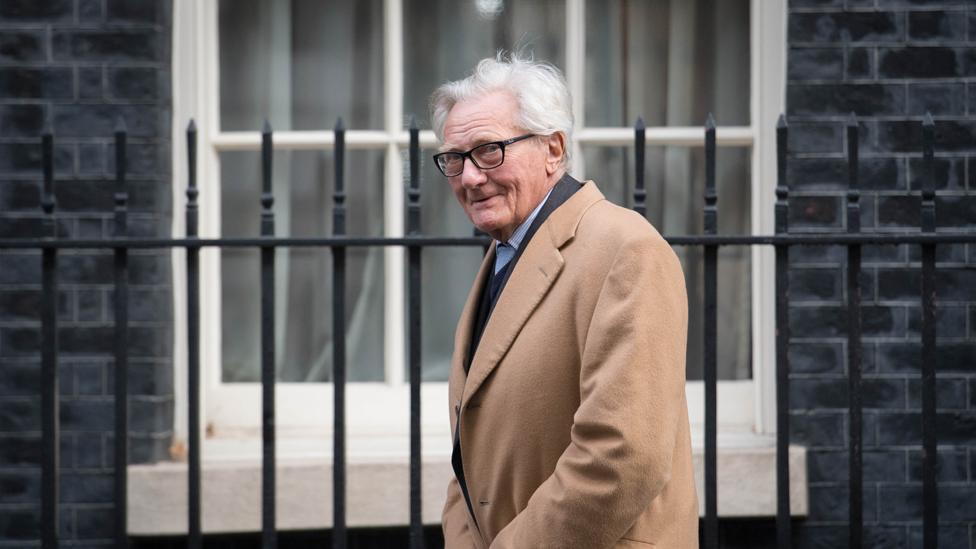
Lord Heseltine
On the other side, the right-wing newspapers and determined hard-line leavers in the Conservative Party will be just as jealously protecting their Brexit from such compromise.
When a US president comes to the end of their term, they are often described as a lame duck, with little authority, because their power and patronage have a clear cut-off point - better currying favour with the next fellow. The same was said of David Cameron when he announced he wouldn't serve a full term.
It is only partially true in those cases. But when a prime minister is on probation, when the question is "When?" not "If?" it will be much harder for her to broker deals and stick to her guns.
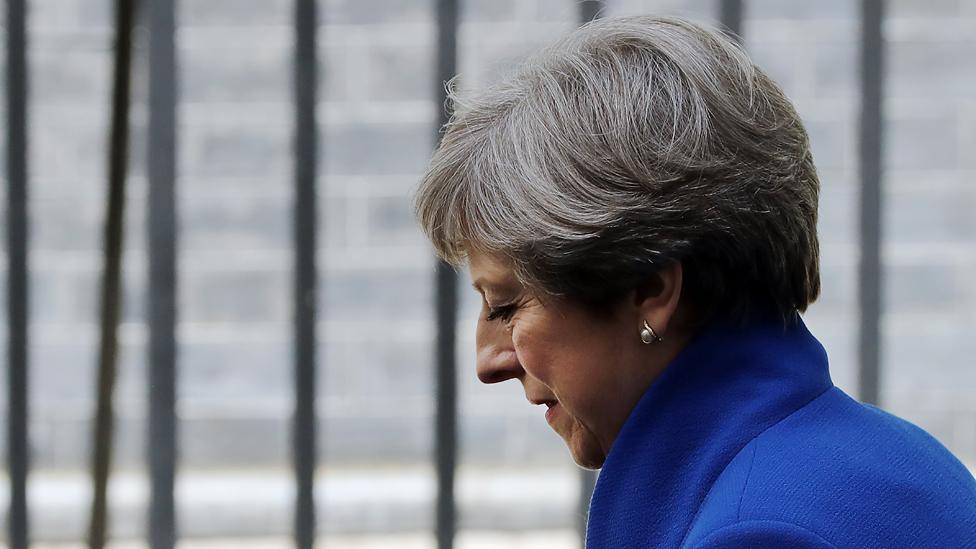
You could argue she has little to lose - but if she fails, the government might fall and an election looms. That's quite a bit of pressure.
We have learned again and again that political will counts for more than the traditional pundit's logic.
Mrs May could take comfort from St Paul's letter to the Corinthians, find her "strength is made perfect in weakness" and emerge anew a figure of substance.
But, for now, she makes the proverbial limping wildfowl look strong and stable.